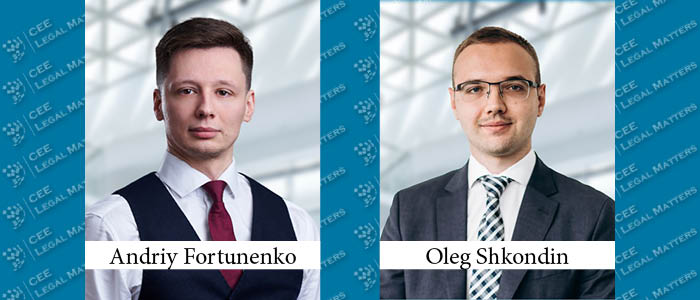Since the beginning of Russian full-scale invasion of Ukraine, Ukrainian authorities have imposed personal sanctions on about 5,000 individuals and 2,500 legal entities.
Unlike some other countries, Ukraine has not criminalised the violation of sanctions regime. This effectively means that a person who violated the sanctions (for example, entered into a transaction with a sanctioned entity) would not be prosecuted on this basis. Nonetheless, the law enforcement authorities may still investigate dealings with sanctioned persons under “general” criminal qualifications in the absence of those specifically connected to sanctions.
How authorities prosecute violations of sanctions regime
As a matter of practice, the law enforcement authorities would qualify violation of the sanctions regime as follows:
1. Financing of terrorism (Article 258-5 of the Criminal Code) – if the offender transacted with an entity sanctioned for dealing with so-called DPR, LPR, and Russian paramilitary units; or
2. Financing of actions aimed at forcible change of the constitutional order of Ukraine (Article 110-2 of the Criminal Code) – if the offender transacted with an entity sanctioned for the alleged connection to the Russian defence or financial sector.
The latter qualification appears to be the most “popular” among the various agencies investigating business crimes. Offences with such qualification are mostly investigated by the Security Service of Ukraine (“SSU”). The grounds for the SSU to inspect a business sector or a particular entity might be quite extensive. The most recent investigations comprise the alleged financing of Russia by a group of gambling companies, and a broker company which allegedly sold Ukrainian bonds to unnamed Russian citizens.
Recent law enforcement trends
The SSU not only conducts criminal investigations, but also gathers information on the entities of interest which might have connections to Russia. The SSU further supplies this information to the National Security and Defence Council, which then approves a new sanctions list. This partially explains why the investigations under Articles 110-2 and 258-5 of the Criminal Code rarely end up with a verdict – the SSU tends to use these mainly to equip the National Security and Defence Council with the evidence necessary to justify its decisions.
As regards the criminal investigations of this type, it is quite challenging for the law enforcement authorities to ultimately issue charges. Violation of sanctions regime as such may be used as an evidence of criminal intent rather than the basis for charges. Suspicions of financing Russian military or terrorist groups are difficult to prove beyond reasonable doubt, so most of such investigations stuck at the pre-trial investigation stage. Side effect is still significant for the businesses targeted by the law enforcement agencies – the latter tend to extensively use a variety of measures from asset freezes to dawn raids. The courts generally apply quite a low threshold to the applications seeking the respective orders. This is mainly because of the seriousness of the charges and the national security motives.
Prospective legislation
In January 2023, a group of MPs submitted a draft law aimed to amend the Criminal Code with a dedicated article criminalising the violation of sanctions regime. The maximum penalty for such an offence would be imprisonment for up to 12 years with confiscation of property. Importantly, liability would only arise in case of violation of domestic sanctions – not those imposed by the EU or foreign states.
In addition to a verdict, the court may apply the so-called special confiscation – to seize any assets or funds which qualify as proceeds of crime or target of crime (including those kept by third parties). We can imagine that the special confiscation would apply to the proceeds received by a party as a result of the transaction with a sanctioned entity.
The authorities in both Ukraine and the EU are trying to counter numerous schemes that help to evade sanctions but do not formally violate them. One of the areas of this effort is the criminalisation of such schemes. Time will tell whether the criminal law measures may aid in this respect.
By Andriy Fortunenko, Counsel, and Oleg Shkondin, Attorney at Law, Avellum


